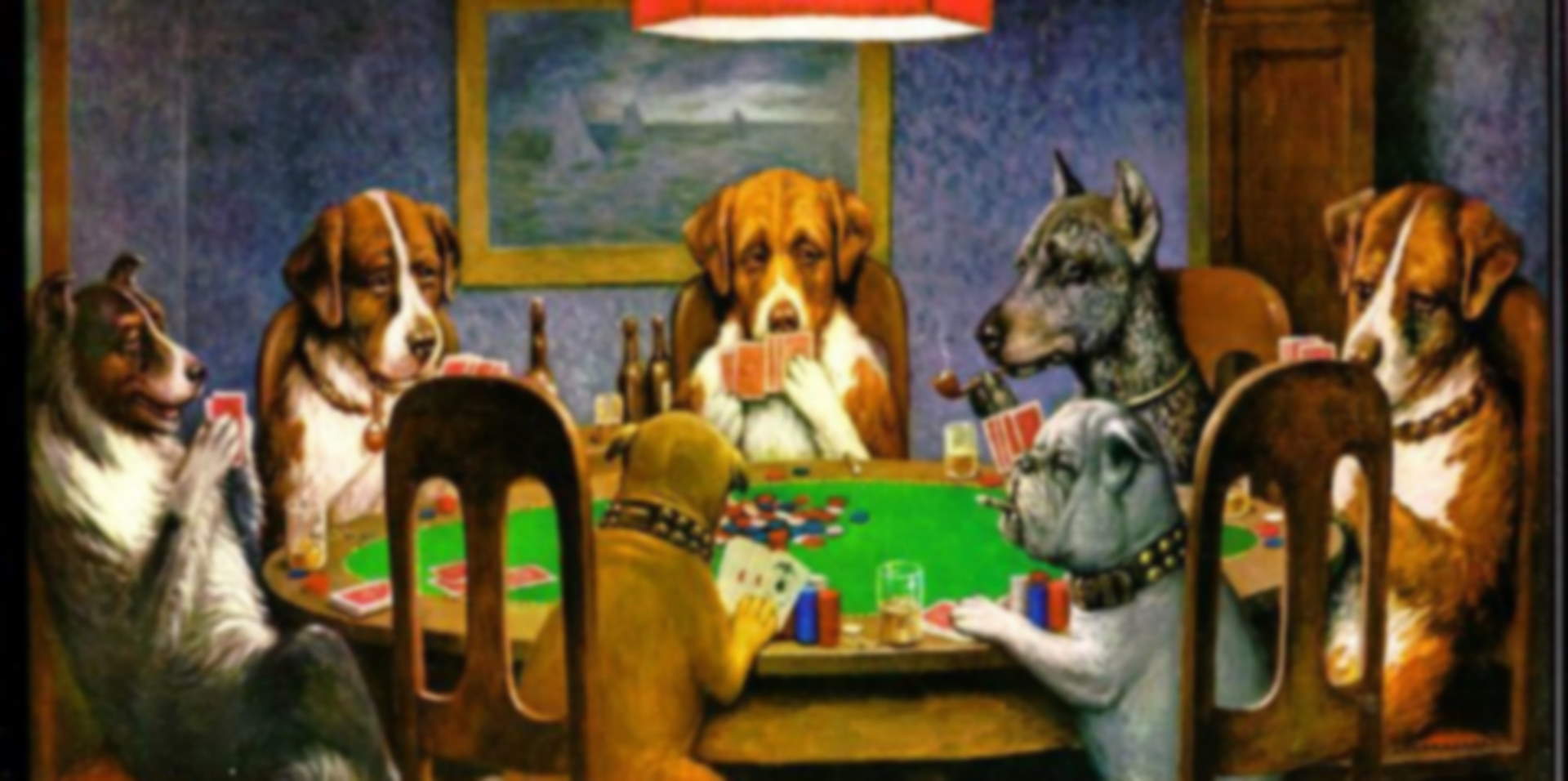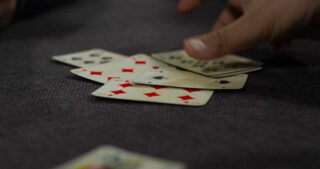

“The Butterfly Effect” also applies to poker. Unfortunately, many fail to grasp its nuances. For instance, even the most subtle actions affect the outcome of a poker tournament. Consider the fact that any motion whatsoever – a laugh, a sneeze, or even the most ordinary of common distractions – will cause a poker dealer to shuffle a deck of cards in a slightly different way. Just one card out of place at any time, by consequence, changes the entire sequence of cards which follow the rest of the tournament. Since the actions of one table very likely are seen and heard by players at adjoining tables, those secondary tables too, are affected by the initial motion. Then, the next tables are affected also, and so on. Sure, poker is a game of skill. But it’s also quite possible that an innocuous chuckle by the player in Seat Five on Day One at Table 164 at the 2005 World Series of Poker influenced the outcome of the biggest poker tournament in history. Joe Hachem’s victory was a combination of billions of figurative butterfly wings flapping, combined with the talent to make a win possible.
Rafael “Ralph” Perry was born in Russia. During his childhood, Perry’s family immigrated to Israel. At the age of 17, Perry arrived in the United States. Perry’s butterfly effect took place 15 years ago in Brooklyn, New York. The 25-year-old was invited into a pool hall one night and discovered a poker game going on in the back room. Perry decided to sit down in the game, and his life was never the same after that.
“The game was Seven-Card Stud,” Perry remembered fondly. “I decided to play. I played for an hour. I ended up winning like twenty dollars. I played every single hand I loved the game so much.”
After his win, Perry was invited by friends to go to a local card club in Brooklyn, where he quickly became a regular player. When poker was legalized in Atlantic City, Perry started playing there. Then, he heard about a place where there were even more poker games – Las Vegas.
“When I first came to Las Vegas, my intention was to get a job as a blackjack dealer. But, I never had to go out and get a job,” Perry said. “I started playing in low-limit stud games. It was all I knew how to play. From that day forward, I started playing stud.”
One afternoon, Perry was sitting down inside a local cardroom where the action was slow. “I looked over at the next table and saw massive piles of chips in the center of the table. The pots were monsters,” Perry said. “I asked the floorman, ‘what game is that?’ He said, ‘Texas Hold’em.’ I asked, ‘How do you play it?’ They told me and I learned how to play.”
Sure enough, that second butterfly effect created a typhoon a few years later. Perry won his way into the 2002 World Series of Poker’s championship event and ended up finishing third. “I had a horrible WSOP up until the main event that year,” Perry recalled. “Then, I finished third and won half-a-million dollars. That was the most money I ever had.”
Four long years have since passed since Perry was thrust in the spotlight. He has made more than his share of cashes and final tables in tournaments, but for all his financial success, Perry had yet to earn a breakthrough tournament victory. That would all change on July 18, 2006.
Ralph Perry was one 525 players who entered the Pot-Limit Omaha championship at this year’s World Series of Poker, presented by Milwaukee’ Best Light. After an initial 516 players were eliminated, that left nine players to compete at the final table. Players were eliminated, as follows:
Russ Salzer, a.k.a. “The Muscle,” finished in ninth place. Salzer, who enjoyed a marvelous WSOP last year, continues to demonstrate his rock-solid tournament skills. Salzer, from New York City, received $14,333.
Jason Newburger was the next player to exit. The 22-year-old student-athlete who is currently attending Bradley University, was playing Pot-Limit Omaha for the first time. Remarkably, he finished eighth and collected $21,499.
Frank Henderson was the only former WSOP gold bracelet winner at the final table. “Hollywood” Henderson won his poker title back in 1989. His bid for bracelet number two came up well short. Henderson earned $28,665 for seventh place.
Next, Spiro Mitrokostas, a graduate of Tufts University (near Boston) and ardent Red Sox fan, struck out and finished sixth. Mitrokostas collected $35,831.
Ray “Rooster” Lynn did not have much to crow about. Lynn was the next player eliminated. The landscaper who now lives in the Washington, DC area received $42,998 in prize money.
A short time later Zhang Luzhe, from Vienna, Austria, waltzed away from the table in fourth place. Luzhe, who regularly plays in big cash games in Europe, added $50,164 to his poker bankroll.
Down to just three players, Brian Kocur lost his final pot of the tournament to Ralph Perry. Kocur, who is in the mortgage and real estate business, cashed out for $57,330.
George Abdallah has been playing poker for nearly a decade. The Houston restaurant owner has enjoyed several cashes and major tournament wins, including first place in a WSOP Circuit Pot-Limit Omaha event this year, in addition to a fourth-place finish at the WSOP Circuit championship held in New Orleans in May. Abdallah wanted this gold bracelet in the worst way, in order to join his mentors Sammy Farha and John Bonetti – two Houston-based champion poker players who have coached Abdallah. But Abdallah was at a sizable chip disadvantage from the start of heads-up play and was never able to seize control of the table away from his rival.
The final hand of the tournament was dealt out when Ralph Perry started with K-J-10-2 against Abdallah’s Q-10-4-3. The flop came 10-7-3 giving Abdallah two-pair. He moved all-in and was in the lead as Perry called. A nine on the turn gave Perry a straight draw. Then, an eight on the river completed Perry’s jack-high straight. Abdallah was forced to settle for second place, which paid $109,644. Despite one of his biggest cashes ever, there was no satisfaction on Abdallah’s face.
With the well-earned victory, Ralph Perry won his first WSOP gold bracelet. He received $207,817 in prize money. As Perry posed for photographers in front of a massive pile of chips and was interviewed by the press, several poker players who were playing in another poker tournament across the room glanced over at the newest WSOP champion. Dozens of conversations ensued. Shuffles were altered. All of poker history changed.
Dieser Artikel erschien auf PokerOlymp am 18.04.2007.


